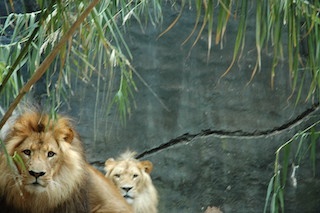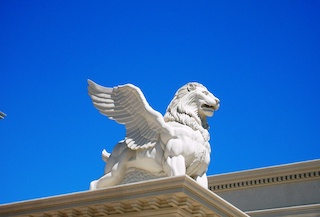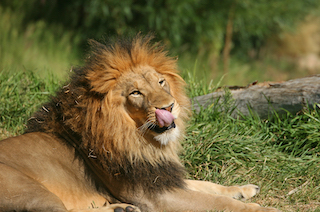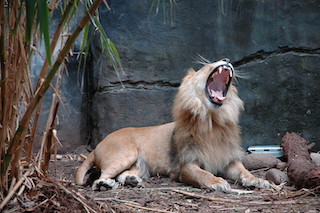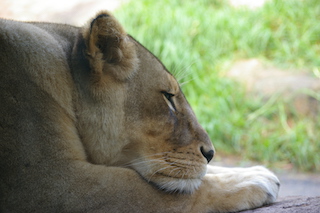The Psychoticism Of Lion Spirit Symbol
In the realm of spirituality, animals have long been symbols of deeper meanings with metaphysical messages. Among these animal symbols, the lion stands out as a powerful and multifaceted creature. It has captured the human imagination for centuries. The lion spirit symbol, with its majestic strength and fierce presence, often represents courage, leadership, and nobility. However, there is another, darker dimension to the lion’s symbolism. It touches on the more complex and psychotic aspects of the psyche. In this article, we will explore the psychoticism of the lion spirit symbol. We will examine both its positive and negative connotations. We will also show you how it can serve as a guide or warning in the spiritual journey.
Understanding psychoticism
Various cultures and spiritual traditions revere the lion. In many ancient societies, lions were symbols of royalty, power, and divine protection. In Hinduism, the lion is the god Vishnu in his Narasimha avatar. It represents the destruction of evil and the restoration of cosmic balance. For people in African cultures, the lion is often a king of the animal kingdom. It is a symbol of strength, courage, and leadership. Meanwhile, in Christianity, the lion represents the strength and majesty of Christ, as well as the overcoming of adversity.
While this psychoticism dominate the lion’s spiritual symbolism, there are also darker, more unsettling interpretations of the lion spirit. These interpretations delve into the psychological and emotional dimensions of the lion’s presence. They reveal how this powerful creature can also represent a struggle with aggression, dominance, and unbridled force.
Dual nature of lion spirit
The lion spirit symbol embodies both light and shadow aspects. On the one hand, it can represent leadership, bravery, and a sense of security. On the other hand, its psychotic tendencies are linked to unrestrained aggression, dominance, and the potential for harm. To fully understand the psychoticism of the lion spirit symbol, it’s essential to explore both its positive and negative attributes.
1) Light side: strength, leadership, and courage
Sometimes the lion spirit symbol manifests in its more positive aspects. This is a powerful guide for personal growth and spiritual empowerment. The lion’s symbolism of courage, strength, and leadership is often invoked when individuals need to step into positions of authority. This is also true when they face challenges with confidence. Lions are natural leaders, and when this symbol appears, it may signify the need to take charge of one’s life or a particular situation.
People who are drawn to the lion spirit often possess an innate sense of power and a strong desire to lead others. The lion encourages them to embrace their inner strength, overcome fear, and pursue their goals with unshakable determination. It also serves as a reminder to stand firm in one’s convictions and be fearless in the face of adversity.
2) Shadow side: Aggression, dominance, and psychotic tendencies
On the darker side of the lion spirit, there lies a potential for psychoticism, a manifestation of the lion’s primal, uncontrollable aggression. While the lion’s strength can be an asset, it can also turn destructive when it becomes unchecked or overly dominant. The shadow side of the lion symbol may reflect an individual’s struggles with anger, pride, and the abuse of power.
In psychological terms, psychoticism is often associated with traits such as impulsivity, aggression, and a lack of empathy or remorse. When the lion spirit appears in this context, it may signify a psychological imbalance or a person’s unprocessed anger or rage. This may manifest in violent or erratic behavior, a tendency to dominate or control others, and an inability to regulate emotional impulses.
The lion’s aggressive nature, in its extreme form, can become dangerous. It can represent a loss of control, where raw power and unchecked aggression become the defining traits of one’s character. In this sense, the lion spirit symbol may serve as a warning to maintain balance and mindfulness when navigating one’s personal power.
Psychoticism of lion spirit in shadow self
The shadow self, a concept introduced by the Swiss psychologist Carl Jung, refers to the unconscious aspects of the personality that are often repressed or denied. These aspects are not necessarily evil, but they represent parts of ourselves that we find difficult to accept or integrate. The lion spirit’s psychoticism often appears as part of the shadow self, signifying the darker aspects of our psyche that we may struggle to confront.
When the lion spirit enters our consciousness in its more chaotic and aggressive form, it may be calling our attention to aspects of ourselves that have been repressed — such as anger, jealousy, or the desire for control. These feelings, when left unchecked, can lead to destructive behaviors, both internally and externally. It is only by recognizing and integrating the shadow aspects of the lion’s nature that we can heal and regain control over our emotional and psychological well-being.
The psychoticism of the lion spirit may also manifest in obsessive desires for power, recognition, or dominance over others. These tendencies can cloud one’s judgment and lead to actions that harm relationships or create toxic environments. In this sense, the lion spirit may act as a mirror, reflecting the dangers of allowing pride and ego to rule our lives.
Lion as a symbol of unconscious mind
In psychological terms, the lion spirit symbol can also represent forces within the unconscious mind that drive our behavior and motivations. The unconscious mind is the repository of repressed desires, instincts, and unresolved emotions. When the lion spirit appears, it may indicate that unconscious forces are at work in our lives, particularly those related to primal instincts such as anger, fear, and aggression.
The lion’s psychotic tendencies may be seen as a manifestation of these unconscious drives, which can influence our thoughts and actions in ways that we are not fully aware of. These primal forces, while often linked to survival instincts, can become distorted and harmful if not properly integrated or understood. In this context, the lion spirit serves as a reminder that we must face our deepest fears and unresolved emotions in order to achieve personal growth and psychological healing.
Role of lion spirit in personal transformation
The psychoticism of the lion spirit symbol, when acknowledged and worked through, can serve as a powerful catalyst for personal transformation. By confronting the shadow aspects of the lion’s aggression and dominance, individuals can reclaim their power in a balanced and healthy way. The lion spirit, in its most transformative form, helps individuals to master their instincts, channel their aggression into constructive pursuits, and develop emotional intelligence.
- Integrating aggression and power: Aggression, when harnessed positively, can be a source of motivation and drive. The lion spirit teaches that power is not inherently bad, but you must temper it with wisdom, compassion, and self-awareness. By learning to channel aggressive energy into productive endeavours, individuals can use their inner lion to achieve their goals without harming others or losing control.
- Cultivating emotional intelligence: The key lesson of the lion spirit is the cultivation of emotional intelligence. The ability to manage one’s emotions, especially anger and frustration, is critical in preventing the psychotic tendencies of the lion from taking over. Developing emotional intelligence involves recognizing and understanding the underlying causes of emotional reactions and learning to respond with mindfulness and empathy rather than impulsivity.
- Finding balance between power and humility: The lion spirit can also serve as a reminder of the importance of humility. While lions symbolises pride and dominance, they are also regal creatures that command respect through their presence rather than through aggression alone. By finding a balance between power and humility, individuals can embody the true strength of the lion spirit, using their influence for the greater good rather than for personal gain or control.
Summary
The lion spirit symbol is a potent and multifaceted archetype, embodying both strength and psychoticism. On one hand, it represents courage, leadership, and personal empowerment; on the other hand, it can signify the dangers of unchecked aggression, dominance, and ego. Understanding the dual nature of the lion spirit — its light and shadow aspects — allows us to confront our own psychological imbalances and use the energy of the lion for positive transformation.
By acknowledging and integrating the psychotic tendencies of the lion spirit, individuals can find greater emotional balance. It is time to cultivate leadership qualities and channel your inner power in constructive ways. The lion spirit symbol challenges us to face our primal instincts. You need to confront the darker aspects of our psyche and emerge stronger, wiser, and more self-aware. Ultimately, the lion teaches us that true power is not about dominance over others, but about mastery over oneself.

